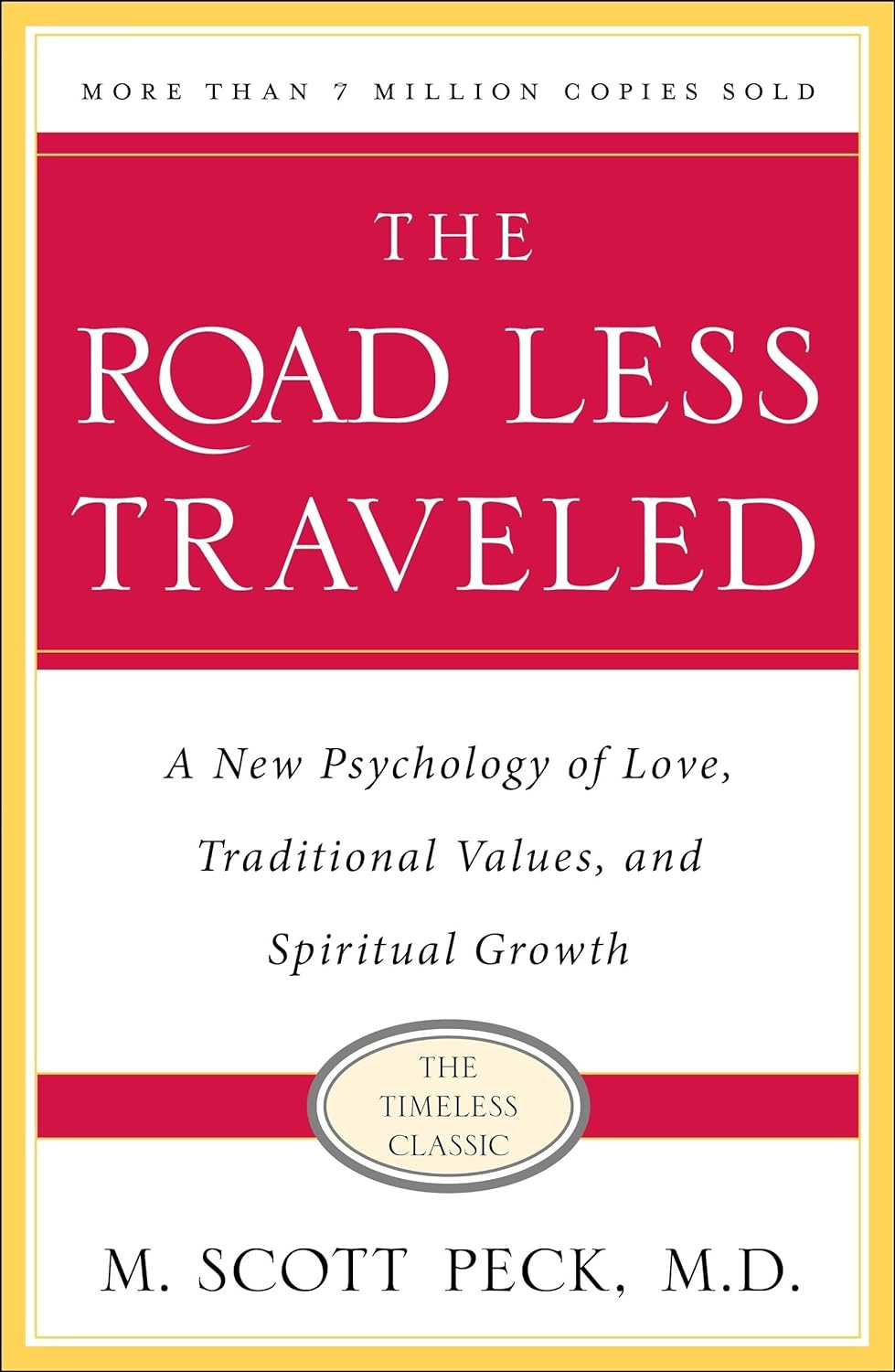The Road Less Traveled
Are You Emotionally Mature Enough to Find True Love?
Good afternoon, friends! Welcome to the ReadVault Club. I'm Tom Niklas, a seasoned writer and book reviewer. Please subscribe to me and join us in reading 52 books a year together. Don't forget to subscribe, like, and comment here.
Today I want to talk about a great bestselling book that has probably been on the bestseller lists for 20 consecutive years. It's called "The Road Less Traveled." The main theme of this book is exploring what true maturity means.
What does it mean to be mature or immature?
In life, we often judge people and say, "That person is so immature" or "They act like a child." But what does it actually mean to be mature or immature? Are there concrete indicators we can look for? This book explains it particularly clearly.
The author believes the two most important things that determine if someone is mature or not are:
First, whether they have self-discipline,
And second, whether they understand what true love is.
If you can grasp these two things, you'll be one step closer to achieving life maturity.
Yet so many people would rather linger in immaturity, and wallow in pain and suffering, than take the road less traveled - the path of self-discipline and love that leads to emotional maturity.
We all know that life is inherently difficult. Right from the start, the author states that life is filled with suffering like aging, sickness, and death waiting for us. But many people idealize that they shouldn't have to endure such hardships.
So when difficulties happen to these people, they think "How unlucky I am" or "This is terrible," and they blame others, "If it weren't for them, I could be doing so much better." You see, they're either constantly passing the buck or wallowing in self-pity - both immature responses because they're fundamentally unwilling to face suffering.
The definition of self-discipline is actively demanding of yourself to face pain and problem-solve with a positive attitude. Once you can learn self-discipline, actively expecting yourself to embrace difficulties and find solutions in a constructive mindset, you move closer to maturity. There are four key principles to develop self-discipline.
Delaying gratification
The first is delaying gratification. As a psychotherapist who often counseled others, the author shared a story about an executive he was counseling whose life was a mess. The author couldn't pinpoint the issue until one day when they were eating cake together. The executive took the cake and ate all the frosting off the top first.
The author asked, "Is that how you normally eat cake?" The executive replied, "Of course, you have to eat the frosting first since it's the best part." He polished off the tasty frosting before going back for the plain cake underneath.
It then dawned on the author that this person was terrible at delaying gratification. If he couldn't even wait to enjoy all the components of a cake together, prioritizing the immediate pleasure of the frosting, then of course at work he would gravitate towards the most enjoyable tasks first while postponing the difficult ones, until they piled into an overwhelming mess. No wonder his boss and family were so frustrated with him. When someone can't delay gratification, you see a plethora of problems arise because the hardest, most crucial issues go unaddressed.
Why is it important, in a sense, for a child to get good grades? It's not that only good students have more opportunities. However, a child able to buckle down and complete that coursework is displaying an ability to delay gratification. Those kids who constantly demand to go play and seek the most pleasurable activity are always taking the path of least resistance around difficulties instead of facing them.
So why do many people struggle with delaying gratification? It often stems from their parent's lack of self-discipline. When parents are undisciplined themselves, the child misses out on the powerful example needed to persevere through challenging work. If parents have the patience to delay gratification themselves and provide attentive love, the child internalizes self-worth. Feeling self-worth, a child is less likely to waste time and more able to embrace difficulties because they've learned to delay gratification.
This marks the starting point of self-discipline. So as the book makes clear, if someone can't delay gratification, even as an adult when problems arise, they may pretend not to notice and just hope the issues go away on their own if ignored long enough.
Keep reading with a 7-day free trial
Subscribe to ReadVault to keep reading this post and get 7 days of free access to the full post archives.



